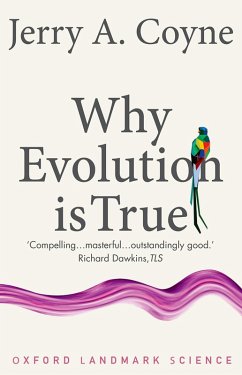
Evolution That Anyone Can Understand (eBook, PDF)
Versandkostenfrei!
Sofort per Download lieferbar
40,95 €
inkl. MwSt.
Weitere Ausgaben:

PAYBACK Punkte
20 °P sammeln!
The function of scientific research is promoting the understanding of the world around us. In theory, anyway, the more we learn, the more potential we have of making our lives better. Thus, we have seen research in electronics provide us with computers, research in chemistry provide us with all manner of synthetics, and research in agriculture provide us with more food. Periodically, scientific research uncovers something that makes some of us uncomfortable. The discovery of the link between smoking and lung cancer and heart disease was not received well by the tobacco industry, and the link b...
The function of scientific research is promoting the understanding of the world around us. In theory, anyway, the more we learn, the more potential we have of making our lives better. Thus, we have seen research in electronics provide us with computers, research in chemistry provide us with all manner of synthetics, and research in agriculture provide us with more food. Periodically, scientific research uncovers something that makes some of us uncomfortable. The discovery of the link between smoking and lung cancer and heart disease was not received well by the tobacco industry, and the link between global climate change and fossil fuel use has not been well received by the petroleum industry, to cite just two examples. Usually the response of those whose world has been disrupted by science is denial, often followed by attack on or ridicule of the science that has challenged them. In the long term, however, science usually turns out to be correct.
Dieser Download kann aus rechtlichen Gründen nur mit Rechnungsadresse in A, B, BG, CY, CZ, D, DK, EW, E, FIN, F, GR, HR, H, IRL, I, LT, L, LR, M, NL, PL, P, R, S, SLO, SK ausgeliefert werden.













